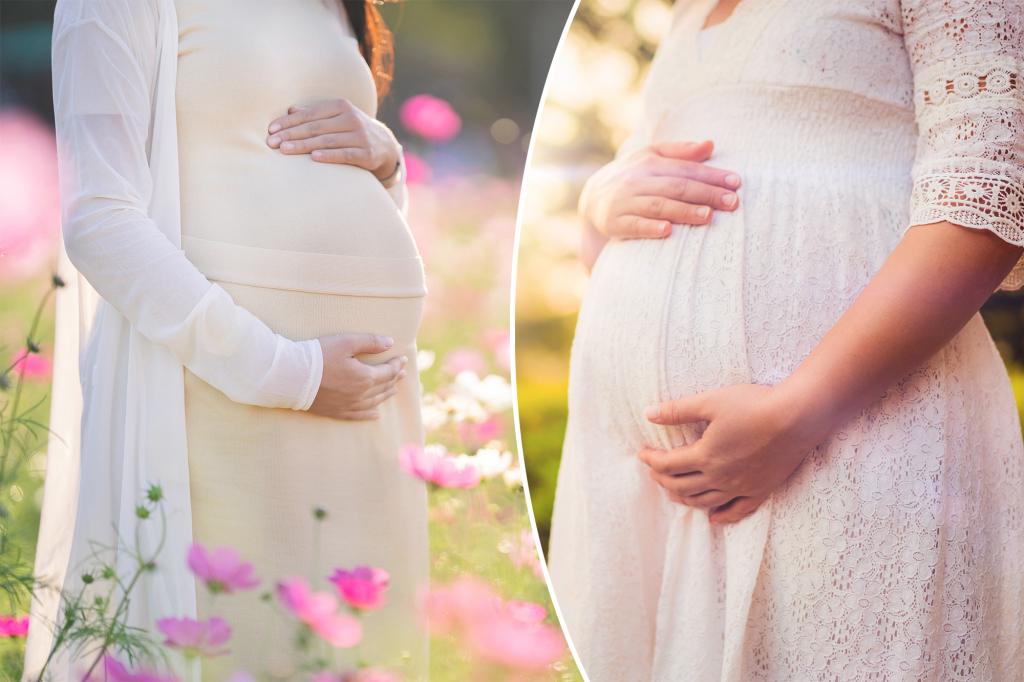The rise of “maternity-era madness” in China has sparked both intrigue and criticism, as young women increasingly opt for fake pregnancy photoshoots to capture what they perceive as their physical peak. This trend, highlighted by Gen Z influencer Meizi Gege, reflects a complex interplay of societal pressures, evolving beauty standards, and anxieties surrounding childbirth in modern China. The phenomenon underscores the enduring influence of traditional ideals of beauty, coupled with the growing prevalence of social media and its impact on self-perception.
The desire for “perfect” maternity photos stems from the belief that pregnancy inevitably alters a woman’s body, potentially leading to weight gain and stretch marks. Driven by this anxiety, many young women, even those unmarried and without immediate plans for children, are choosing to stage these photoshoots before they believe their bodies will change. This preemptive approach allows them to control the narrative of their physical appearance, conforming to a perceived ideal of youthful, slim beauty even within the context of motherhood. This trend also reflects a broader societal emphasis on youth and appearance, particularly for women, which is further amplified by social media platforms that prioritize visual presentation.
The backdrop to this phenomenon is China’s evolving demographic landscape. Despite the end of the one-child policy in 2015, birth rates continue to decline, with the average age of first-time mothers steadily increasing. This demographic shift, coupled with societal expectations and pressures, contributes to the anxiety surrounding pregnancy and motherhood. The decision to simulate pregnancy for a photoshoot can be interpreted as a way to address these anxieties, allowing women to engage with the idea of motherhood on their own terms and timeline, even as they postpone or reconsider actual childbirth.
The accessibility of fake baby bumps, readily available online in various sizes, further facilitates this trend. The ease of purchase and the ability to simulate different stages of pregnancy caters to the desire for a curated and controlled image. This highlights the commodification of pregnancy aesthetics, transforming a significant life event into a meticulously crafted performance for social media consumption. The trend also reflects a broader shift towards simulated experiences, where individuals prioritize the image and representation over the actual event itself. This desire for control extends beyond maternity photoshoots, with some young women also opting for preemptive bridal photos, driven by similar anxieties about aging and the preservation of youthful beauty.
However, the practice of fake maternity photoshoots has drawn significant criticism, with many condemning it for perpetuating unrealistic beauty standards and contributing to body image issues. Critics argue that these staged photoshoots reinforce the “white, skinny, and young” ideal, placing undue pressure on women to conform to a narrow definition of beauty, even during pregnancy. The emphasis on pre-pregnancy physique as the ideal further marginalizes the natural changes that accompany pregnancy and motherhood, potentially contributing to feelings of inadequacy and shame for women who experience these changes. Critics also view the trend as a superficial and performative engagement with motherhood, prioritizing the aesthetic over the emotional and physical realities of pregnancy and childbirth.
The backlash against this trend is evident in the satirical responses it has elicited online. Commenters have mocked the practice by suggesting preemptive photoshoots for other life events, such as 70th birthdays or even funerals, highlighting the absurdity of prioritizing youthful appearance to such an extreme. These satirical responses underscore the underlying anxieties that fuel the trend while simultaneously criticizing its superficiality. The debate surrounding fake maternity photoshoots reflects a broader societal conversation about beauty standards, the pressures of motherhood, and the influence of social media in shaping perceptions of self and identity in contemporary China.


